Description
Introducing the book of the happy death of Albert Camus
The Silent Death by Albert Camus was first published in 1972. This novel is written in two main parts. The main theme of this book deals with absurd and existential issues, which, of course, are repeated in almost all of Camus’s novels. Ehsan Lameh, the translator of this book, writes about this book: “Happy death is the only work of Albert Camus that was published after his death. This book has been a prelude to alien writing. Camus wrote this work at a young age and recounted most of his memories of his trip to the Belco region of Central Europe, especially Italy.
Critique of the death of a cluster
If we consider the world as a country with diverse literature, then tourism is probably the dream of every reader. This means that reading world literature takes people on a wonderful and far-reaching journey. Instead of seeing the Eiffel Tower and the Champs Elysees, a tourist singer passing through France will probably see the faces of Albercamo and Charles Baudelaire first. Although Albercamo was born in Algeria, much of French literature owes much to his books and writings, which is why French literature is known as Camus. Albert Camus’s fascinating pen is so beautiful that it encourages readers to keep reading by reading just one line of his book.
Why should you read this book?
Finding a reason to read the works of Albert Camus is basically useless, because you only need to read a line from the writings of this Algerian author to become a fan forever. Most of Albercamo’s works have been translated into Persian, and fortunately all of them have good and clean translations, so you can read and enjoy Camus’s books without worrying about translation.
About the well-written book of death by Albert Camus
Undoubtedly, Camus was influenced by Nietzsche in this novel. At the age of twenty-five. Camus writes the novel Happy Death, which shows the face of Dionysius and the category of the will to happiness, which feeds the protagonist’s rebellion with anti-Nietzschean thinking. Do not be poor. But Nietzsche considers the poor man to be incapable and the rich to be forgiving.
Nietzsche writes: The one who is poor in life, the one who is incapable also makes life miserable and begs. The rich of life enriches life. “It is a parasite of life and it is a giver and giver of life.” “Everybody who feels the will and the happiness deserves to be rich,” Camus writes happily somewhere in Death.
Summary of the happy death story
It is interesting to know that the main character of this book is the same as the main character of the alien book, Morso. In the book Death of Khosh Morso, he commits a murder. After killing a man named Zagro, he picks up his money and goes to happiness. Throughout the story we find out what happened between Morso and Zagro ….
We read in part of the book Death
Every evening, as Morso walked down the street and proudly watched the glow and shadow that appeared on Mart’s face, everything seemed strangely simple: even his courage and perseverance. He was grateful to Mart, who showed off her beauty every day like a gentle drunk. Marty, who was not noticed, suffered as much as Marty, who was interested in other men. He was even happier when the hall was full before the movie started. He entered the cinema with him.
Mart was moving in front of him; There was a smile on Golestan’s face and her beauty was deadly. Morso was wearing a hat, under the influence of a strange sense of comfort, which was a kind of inner consciousness and dignity. His words were serious and far-fetched. He exaggerated a lot in his formal behavior. He stopped for a moment until the controller passed. He lowered Mart’s chair. His work was more out of gratitude than arrogance and ostentation, and it was full of love for everyone around him.
If he gave a large reward to the controller, it was not because he did not know how to be happy, but because of this, he worshiped a goddess whose smile shone like a lamp in his staring gaze. Through the middle of the curtain, as they walked down the hall, their image was reflected in the mirrors, and he could see the image of his joy in it, which filled the place with vivid and well-composed images: his tall, dark body and Mart’s smile in bright clothes. .
Yes, he loved his face as he saw it; His mouth trembled between his lips and there was excitement in his eyes. But a man’s beauty reflects his inner truths and abilities: his face showed his abilities. But is this a degree of status compared to the excessive futility of a woman’s face? Morso was now aware of his vain joy and was smiling at the mysterious demons inside him.
When they returned to the theater, he recalled that when he was alone, he never moved during interludes, preferring to smoke and listen to music played when the lights came on. But tonight his joy was endless, and he felt that every opportunity was worth renewing. As he sat down, Mart turned and greeted the man sitting behind them. Morso nodded arbitrarily, but felt a faint smile on the man’s lips. Morso sat down, ignoring Mart’s hand on his shoulder to draw attention. Until recently, he could have reacted happily, and that was another reason why Mart realized his power.
About the author
Albercamo is a French writer and philosopher born on November 7, 1913 in Algeria. Camus’s childhood coincided with World War I and the colonization of Algeria by France. Albert Camus is one of the pioneers of the school of absurdism and existentialism. Although these schools are known for their absurdism, in fact Camus’s character was full of life and desire for life. In his books, he shows the emptiness of life, but with his characters, he shows his readers how they can survive in this emptiness. . Albert Camus received the Nobel Prize in Literature in 1957 for his work and artistic life.
Translation of the book Silent Death into Persian
Albert Camus’s pen is so fascinating that many translators have translated his works into Persian. Among these translators are great letters such as Jalal Ala Ahmad, Khashayar Deihimi, Lily Golestan and Ehsan Lame. The copy of the book that is now in front of you has been translated into Persian by Ehsan Lameh.
Ehsan Lame is a young, ambitious and hard-working Iranian translator born in 1977. So far, he has translated important works of world literature into Persian. Among these books are the sensational Bohomil Herabal, The Good Death by Albert Camus, The Psychology of Sleep by Sigmund Freud, The Memoirs of Moscow by Emma Gerstein, and The Sun Still Shining by Ernest Hemingway.
Who is this book suitable for?
Choosing an audience for Albercamo’s books is not a difficult task because all readers will undoubtedly enjoy reading his books. Reading Albercamo books is like escaping from this world and entering a new world. Perhaps because of the philosophical themes and themes of his stories, reading it is more appealing to those interested in philosophy.
If you liked this book, read the following books as well
The books you see in the list below are books that you may enjoy reading after reading Death.
The Fall of Albert Camus
Alien by Albert Camus
Waiting for Godot by Samuel Beckett
The end of the game by Samuel Beckett
What you have read above is a review of the well-written book of death by Albert Camus, translated by Ehsan Lameh.
.
The book Happy Death was written by Albert Camus before The Alien. It seems that Albert Camus did not intend to publish it, but this book will be published seventeen years after his death. It can be said that this book was a draft for the creation of aliens. The main character of the story is Morso, with the same alienation. But it seems that the alien Morsi is the perfect Morsi of the Book of Death. We are easily confronted with the difference between these two works and the path that the happy death has taken to complete and reach the alien.
For example, in the novel Happy Death, the author tries to show the audience his alienation from the world and the issues surrounding it by creating different circumstances, such as describing Morso’s funeral and indifference. But if you have read the alien novel, you know that the story begins with such a sentence:
My mother died today, maybe yesterday, I do not know!
In fact, in the novel Alien, with its first line, which is a short and simple sentence, we can easily understand the depth of the tragedy of the alienation of the character of the story from the very beginning. This in itself, as the smallest example, can be enough to understand the difference between the maturity of Camus’s pen from a happy death to a foreign one.
The translator of the book wrote in his introduction:
Undoubtedly, Camus was influenced by Nietzsche in this novel. At the age of twenty-five, Camus wrote the novel Happy Death, depicting the face of Dionysius and the category of the will to happiness, which feeds its heroic rebellion with anti-Nietzschean thought. Camus seeks happiness, and happiness depends on having money and wealth, and not being poor. But Nietzsche considers the poor man to be incapable and the rich to be forgiving. Nietzsche writes: “He who is poor in life, he who is incapable also makes life miserable and begging. The rich of life enriches life. “It is a parasite of life and it is a giver and giver of life.” “Every man who feels the will and the happiness deserves to be rich,” Camus writes happily somewhere in Death.
Summary of the book Happy Death
In the death of Khosh Morso, a paralyzed man named Zagro is killed. And by taking his money, he goes to his happiness.
He commits the murder quite passively, and even then he does not seem to have the slightest sense of remorse. Rather, it moves towards traveling, experiencing life, enjoying, and making oneself happy.
Of course, we find out throughout the story that the murder was somehow an agreement between Zagro Morso.
The book Happy Death is written in two chapters:
Natural death
Deliberate death
About the book Happy Death
Zagrovi, who is himself a strong and influential character in the story and who had a successful and free life in the past, no longer seems to be able to bear such a burden. And he does not want to be paralyzed for the rest of his life. In fact, Zagro is the one who tells Morso that the only thing that matters in life is happiness. And wealth is a prerequisite for this happiness. Zagro tells Morso that your misfortune is that you are still giving in to poverty. And in fact, it pushes him towards rebellion that leads to his happiness. In between, there are interesting dialogues between these two people, some of which I will mention:
Zagro looked at him hesitantly and said, “I do not like to talk seriously. Because then there is only one thing to talk about. The justification you can have for life. “I do not know how to justify these paralyzed legs.”
“I do not know,” said Morso, without returning.
Zagro laughed. “Thank you, you leave no room for illusion.” He changed his tone: “You have the right to be strict. “But there is still something I want to tell you.” Zagro continued: “Look at me and listen! I have someone to help me, take me to the toilet, rinse and dry me. Worst of all, I’ll pay someone for it. However, I never take action to make this life that I believe in so much…
I give in to even worse: blindness, deafness, everything, as long as I feel that dark fire that is alive in me. “The only thing that makes me thankful for life is that it has allowed me to continue to burn.” Zagro, who was out of breath, licked the back of the chair. Nothing could be seen from him except the reflection of the white light that the blanket cast on his chin. Then he continued: “And you Morso! “With this combination, one of the tasks is to live and be happy.” (Happy Death Book – Pages 42 and 43)
Morso has been a victim of poverty since his childhood. But this is the point at which he stands, says “no” to his poverty, and says “yes” to life. This is the beautiful rebellion. Now at any price! In fact, Morso, overcoming his emptiness and indifference, is now doing something to make his own happiness.
This book places great emphasis on the will to happiness. According to this belief, the desire and desire for happiness is the greatest human asset and this will can justify any action. Man must build his happiness with the freedom of his choice and will. And it seems that this is the only right we have from this life full of algebra.
In the middle sections of the book, more is given to the descriptions of Morso’s travels, which have little to do with the main subject and concern of the novel. And in my opinion, even by removing some of these processes and descriptions, no harm is done to the subject of the story.
Note: The continuation of this part contains a part that spoils the end of the story.
After the murder, Morso goes to his happiness, builds it, and then, step by step, approaches his death. In fact, the book depicts two types of death in two chapters. The first chapter is called “Natural Death”. Which is the death of Zagro. A death that shows the deprivation of his will and his submission to life and consequently to his death.
The second chapter, entitled “Deliberate Death,” represents the will to happiness in Morso’s view. Death that has fed enough of his life. This death is voluntary and intentional, because it stems from a completely voluntary life and self-made happiness.
Death is terrifying to those who have not lived. Those who surrender to fate and have not taken the slightest step to their happiness. But Morso’s religion has come to life. He has gone through his own decline and emptiness, and then has consciously and willingly moved towards making himself happy. So, with the utmost satisfaction, he is ready to leave not only this world, but also himself. Because self-made happiness leads to happy death.
He dies happy, because he lived happily.
Finally, the translation of the book was not good in my opinion. Translation errors had multiplied the complexity of the text. If you decide to prepare the book Death, it seems that Dr. Ghasem Kabiri’s translation is more appropriate than Jami Publications.
Sentences from the text of the book Death of Happiness
The blossoming of the air and the fertilization of the heavens seemed as if the only duty of man was to live and be happy. (Happy Death Book – Page 15)
The desire for freedom and independence arises only in a man who always lives with hope. (Happy Death Book – Page 32)
When I look at my life and its mysterious colors, I want to cry. Like this sky, sunny afternoon, rainy afternoon. Zagro! Now I think of the lips I kissed and of my own miserable childhood, of my passion for life and the ambition that sometimes overwhelms me. At the same time, I’m sure the day will come when you will not know me at all. Caught in misery and overjoyed: I can not speak. (Happy Death Book – Page 45)
I will not have an experience outside of my own life: I will be an experience of my own life. (Happy Death Book – Page 45)
Morso! At the age of twenty-five, I knew in advance that anyone who had the feeling, the will, and the passion for happiness deserved to be rich. In my opinion, the desire for happiness is the most precious thing that lies in a person’s heart. I think that justifies everything. (Happy Death Book – Page 47)
“Morso, a life that was my right and later took my feet off without any accident. I could not give up this life… and now I have fallen here. You understand: you must also understand that I did not want to continue this humble life. Twenty years my money has been with me. “I lived my life sparingly and rarely invested.” He put the palms of both hands to his eyebrows and said softly, “Life should never be contaminated with the kisses of a paralyzed man.” (Happy Death Book – Page 48)
Do not think that money is the source of happiness. I just mean that it is possible for a certain group of people to be happy, as long as they take time and that having money is the way to get rid of money. (Happy Death Book – Page 49)
For twenty years I could not experience anything special from happiness. I did not know this life that I was devouring completely. And what scares me about death is that I’m sure life will pass without me. Do you understand? The laughter of a young man if he does not change to rise from the heart of darkness… Morso! This means that I am still hopeful in this situation, inside me. (Happy Death Book – Page 50)
Do not take anything as seriously as happiness. (Happy Death Book – Page 50)
As it often happens, the best things in life crystallize around the worst. (Happy Death Book – Page 80)
If you trust life on good days, life will have to answer. (Happy Death Book – Page 97)
Do not ever give up. You have many things inside you and the most noble of them is feeling happy. Just do not wait for a man to come to you. This is a mistake that many women make. Find happiness in yourself. (Happy Death Book – Page 103)
Happiness requires a choice, and in that choice, a strong will and an intelligent desire. Morso was able to hear Zagro’s voice: “Not the will to leave, but the will to happiness.” (Happy Death Book – Page 111)
He did not want to die like a sick human being. He did not want his illness to be of the kind that is often common: weight loss and then death. In fact, what he wanted was to stand between life, a life full of blood and health, and death. (Happy Death Book – Page 134)
Introducing the novel Happy Death
A Happy Death is the only work by Albert Camus to be published after his death. This book has been a prelude to alien writing. Camus wrote this work at a young age and recounted most of his memories of his trip to the Belco region of Central Europe, especially Italy.
Undoubtedly, Camus was influenced by Nietzsche in this novel. At the age of twenty-five, Camus wrote the novel Happy Death, depicting the face of Dionysius and the category of the will to happiness, which feeds the protagonist’s rebellion with anti-Nietzschean thought. Camus seeks happiness, and happiness depends on having money and wealth, and not being poor. But Nietzsche considers the poor man to be incapable and the rich to be forgiving.
Nietzsche writes: He who is poor in life, he who is incapable also makes life miserable and begging. The rich of life enriches life. That one is the parasite of life, and that one is the giver and the giver of life. Camus writes somewhere in death: Every person who feels the will and happiness deserves to become rich.
But this work is not unlike Dostoevsky’s novel Crime and Rewards. Morso, the protagonist of Happy Death, kills a paralyzed man for misappropriating his property in order to achieve happiness. Raskelnikov kills the main character of the crime and rewards an old woman for taking possession of her property in order to achieve happiness.
In this work, Camus, unlike the stranger who has a simple and fluent prose, has sought a special writing style. In Khosh Death, he performed in a kind of way and used all his power in using words and sentences, even imagery, inner and philosophical speeches.
The obvious difference between this work and the others mentioned is that they reach emptiness, but Morso, the main character of the story, seeks happiness in his happy death after Zagro’s murder, gives meaning to his life and dies apparently happy.
About Albert Camus
Albercamo was born on November 7, 1913, into a poor family in Algeria. His father was a poor man working in Algeria and his mother was a servant. They had two children, Lucien and Albert, whose father was killed in the war, and whose mother was responsible for raising the two.
Camus dropped out of school because of his family and became a laborer. His teacher recognized his talent and encouraged him to continue his education, and helped him get a scholarship, attending a school where the children of wealthy families attended.
Camus graduated from high school, worked in the summer and received a salary, he also achieved success in football.
When he was able to get his diploma, he developed tuberculosis, which is why he had to give up football forever.
Albert Camus is a well-known French writer, novelist, and essayist best known for his famous trilogy (Alien, The Legend of Sisyphus, Caligula), the first African writer to win the Nobel Prize in Literature.
Camus married a girl named Simon Hye in 1934, but they divorced two years later.
In 1940 she married a pianist and mathematician named Francine Four. Although he loved his wife but did not legally register his marriage, he did not do so even after the birth of his twins and avoided it.
Camus eventually died in a car accident at the age of 46 two years after receiving the Nobel Prize.
1- Introducing the book on YouTube
2- Introducing the book in Aparat


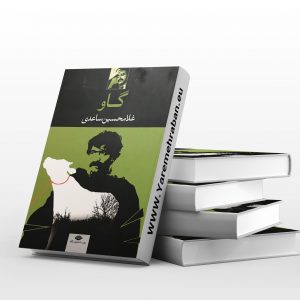
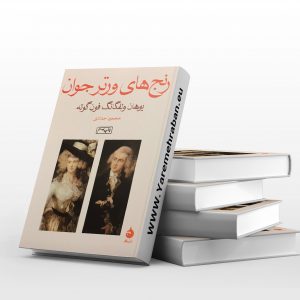
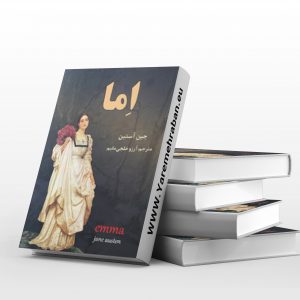

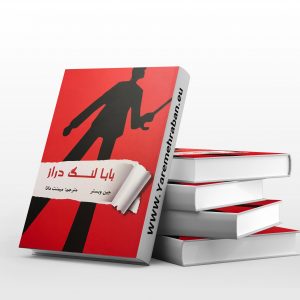
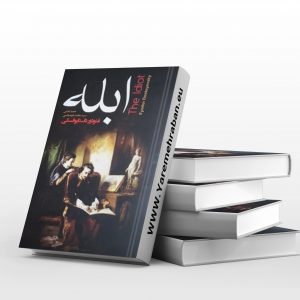
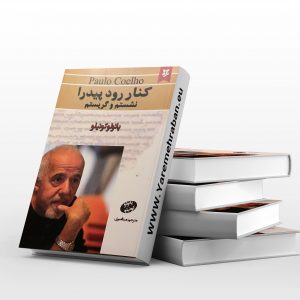
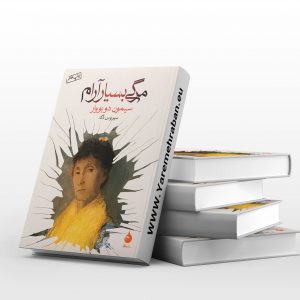
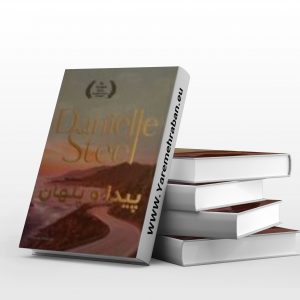
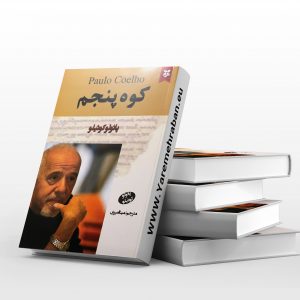
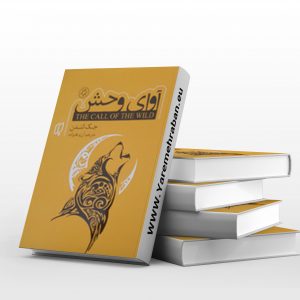
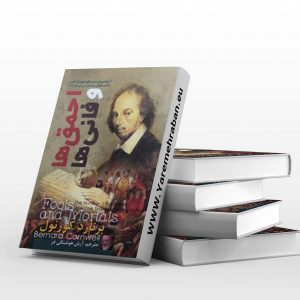
Reviews
There are no reviews yet.